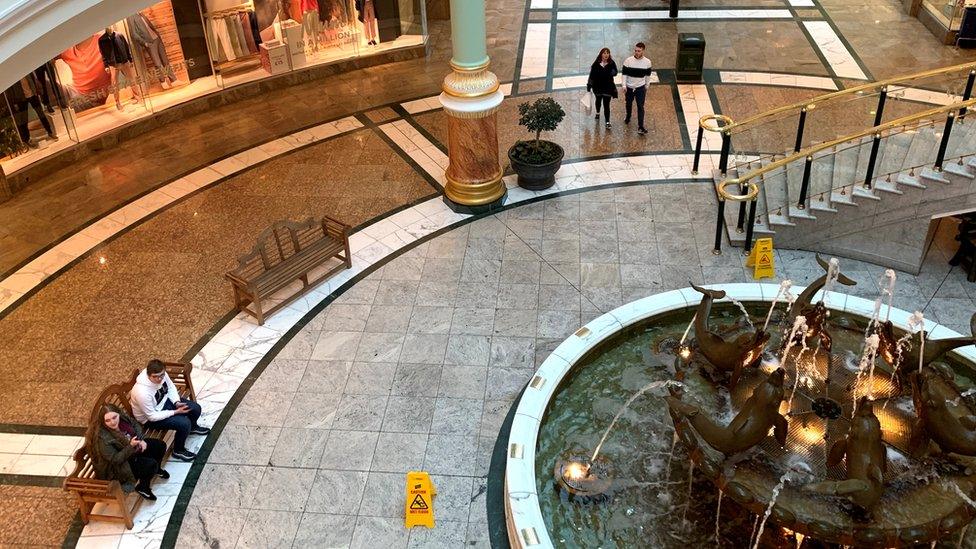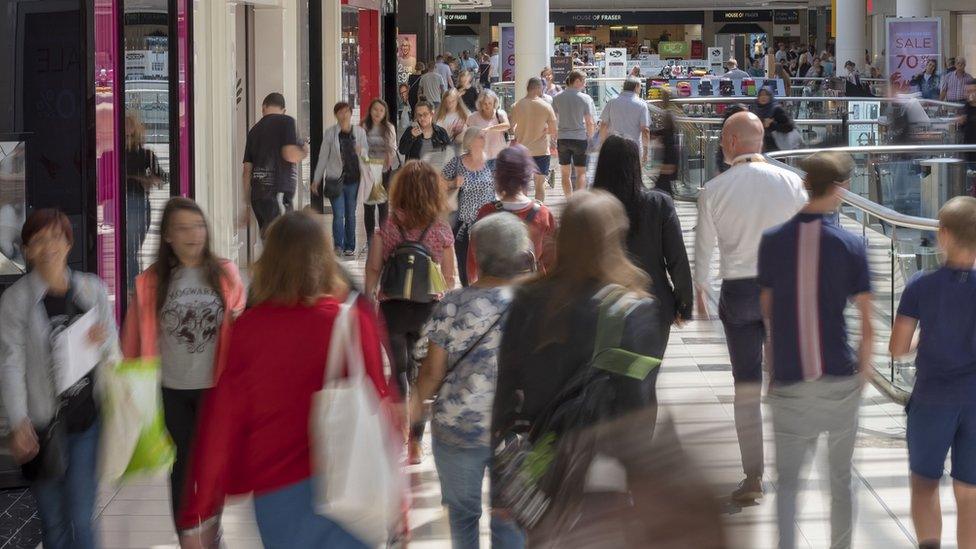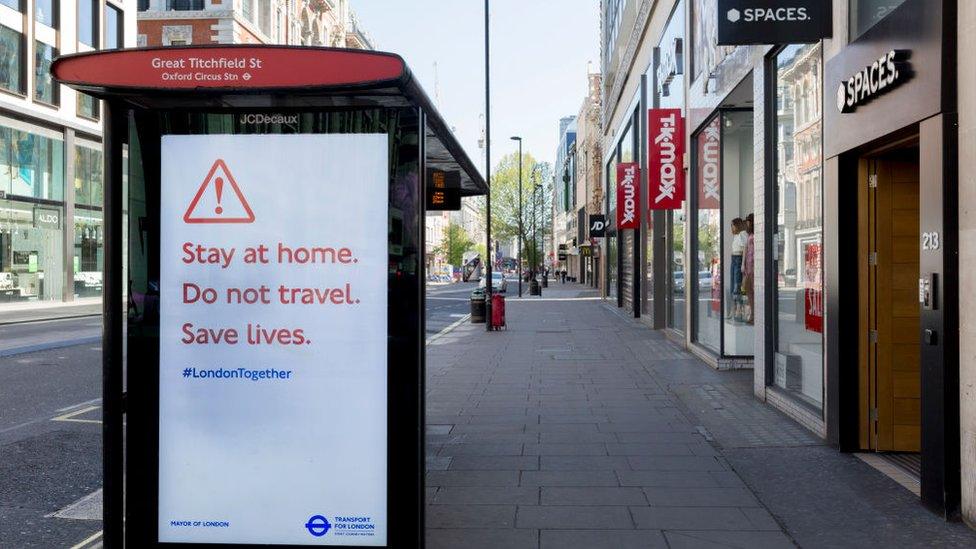Coronavirus: Shopping centre giant Intu warns of debt default risk
- Published

Intu's shopping malls, including Manchester's Trafford Centre, remain 'semi-closed'
Shopping centre operator Intu has warned that it risks defaulting on its debts unless its lenders give the firm significant breathing space.
The coronavirus pandemic has hit rental income and Intu said there was no certainty how quickly the market would recover once the lockdown is lifted.
It also said it was unable to sell any of its shopping centres to raise funds.
The owner of Manchester's Trafford Centre is now asking lenders for a grace period of up to December 2021.
The firm said its shopping centres would remain "semi-closed" until at least 1 June.
Intu, which also controls Lakeside in Essex, was already struggling under £4.6bn worth of debt prior to the Covid-19 crisis.
Earlier this year, it planned to tap investors for £1.3bn but was forced to abandon the fund raising attempt.
It is now seeking a so-called standstill agreement with its lenders, which would delay both debt repayments and tests on whether Intu has breached the covenants on its borrowings.
The company said that once the current crisis had passed, it would then be in a better position to explore "solutions" as well as possible disposals of its shopping centres to "ultimately fix the balance sheet".
Intu recently appointed David Hargrave, a former partner at accountancy firms PwC and EY, as its chief restructuring officer.
A number of retailers including Debenhams have sought rent holidays from landlords, while others such as Primark and Burger King stopped paying rent in March.
The government has also introduced measures to protect tenants from landlords using aggressive methods, such as winding up petitions, to collect rent.
- Published1 May 2020

- Published23 April 2020

- Published12 March 2020
